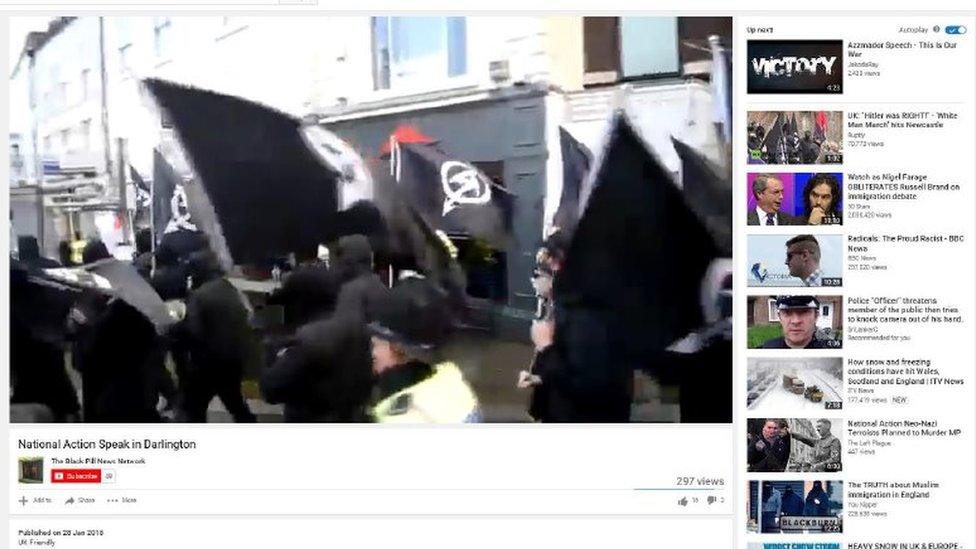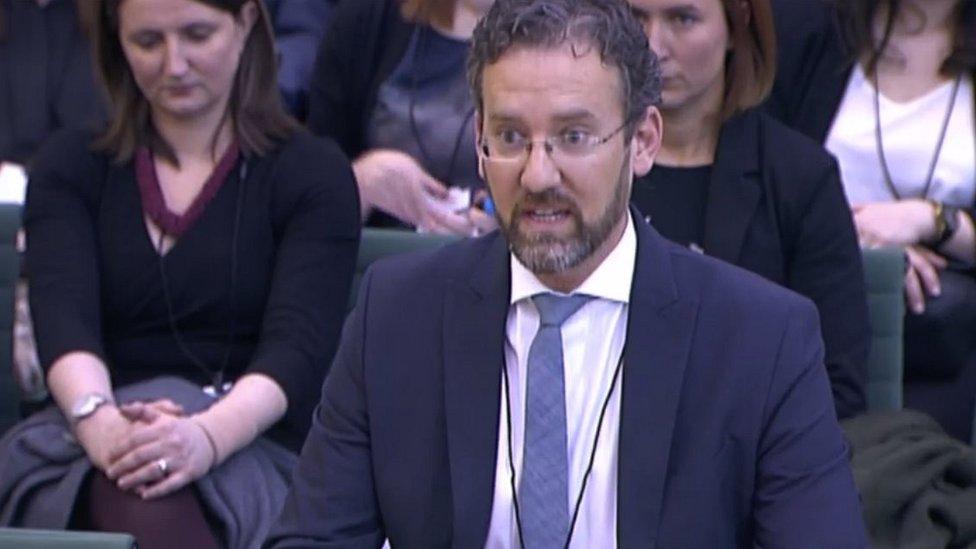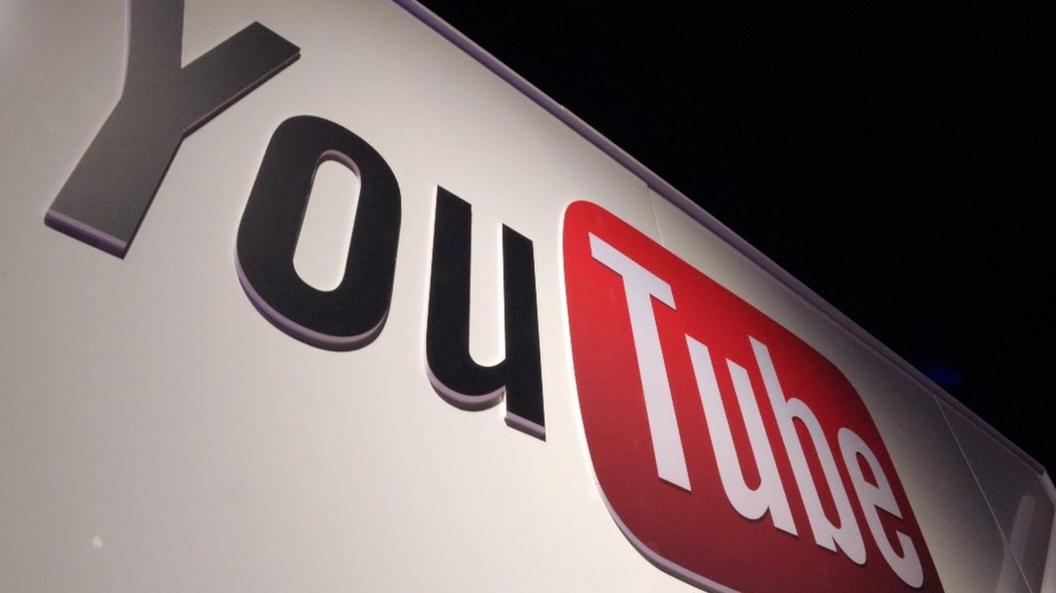Google blames National Action failure on YouTube reviewers
- Published

The Home Affairs Committee took this screenshot of one of the video uploads before it was removed
Google has blamed human error for a failure to remove four propaganda videos posted to YouTube by the banned UK Neo-Nazi group National Action.
Google's counter-terrorism chief said the material had been flagged by its systems, but its review team then wrongly decided not to remove it.
William McCants told the Home Affairs Committee that action was being taken to avoid this happening again.
But the committee chair said the matter should have been taken more seriously.
Yvette Cooper noted that the MPs had reported the same 2016 National Action speech in Darlington eight times to YouTube over the past 12 months, after spotting that it had been reposted and not removed.
"I'm not sure what else we could have done to raise the seriousness of this organisation," she said.
Mr McCants replied: "Clearly this was a failure of our review process and we are going to fix it. I personally am charged with taking care of this problem, and I am going to be watching it like a hawk."
YouTube last appeared before the committee in December when it was criticised for failing to deal with earlier instances of the same material.
'Wrong call'
Mr McCants said that in the latest instance, three of the videos were caught by YouTube's automated systems and a fourth by a human reviewer.
He explained that uploads of the demonstration were not always an exact match. They therefore had to be sent to human reviewers to check whether the footage had been used legally - for instance as part of a news report.

Mr McCants said YouTube had dealt with about 150 instances of National Action material
In all four cases, he acknowledged, the team had made "the wrong call" despite having been trained to recognise that such material should be banned.
He added that three steps were being taken to address this:
videos featuring National Action supporters would now be sent to specialist reviewers trained to recognise the group's slogans
the training for general human reviewers would be improved
software used to flag National Action videos would be fine-tuned to make it able to spot shorter clips than it had before
"It is my job and my sole mission to make sure [extremist videos] have no space on our platforms," Mr McCants added.
"I am going to do my job."
However, he faced further criticism later in the hearing when Stephen Doughty MP said he had found other illegal material on YouTube this morning, featuring outlawed Northern Irish Loyalist and Republican terrorists.
"If you came back in four weeks time, would I be able to find that material on your platform again?" Mr Doughty asked.
"I hope not," Mr McCants replied.
"You hope not? Well I'm sorry that is simply not good enough," Mr Doughty followed up.
Rehman Chishti MP also attacked the Google executive when it emerged Mr McCants had not checked whether the reviewer who had made the incorrect decision had made previous mistakes.
"That goes to the competence of the individuals that you have," the politician said.
Mr Chishti also suggested Mr McCants should consider resigning if banned extremist videos were still available on YouTube in six months time.
MPs were also disappointed that Mr McCants - who has held his post for four months - did not know:
where the reviewers involved were based
if the reviewers were employed directly by YouTube or were third-party contractors
how many third-party contractors were employed to check videos
who provided the training to the contractors
"The failing is not simply an accident," Ms Cooper concluded.
"The evidence that you have given us today is so weak that I am afraid this looks like a failure to even do the basics.
"We are extremely disappointed by the evidence that you have given."
- Published7 March 2018
